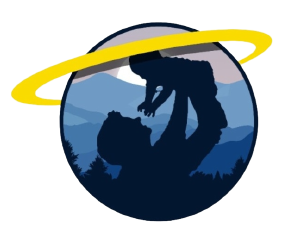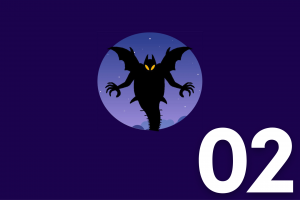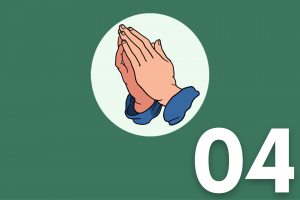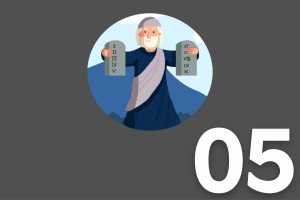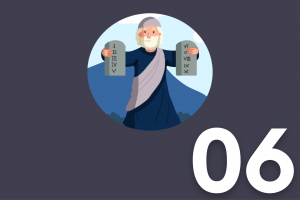Shabbat Shalom everyone! My name is Peter. Today is the 27th day of the 11th month, year 5782; January 29th, 2022, and welcome to the Our Heavenly Father podcast.
In today’s episode, we’ll be talking about The Bible.
In our last episode, we talked about how having free-will reveals a loving Heavenly Father since it would have been easier to create human beings as automatons that can only work in harmony with His creation, rather than free-will creatures capable of choosing to work against this harmony.
In this episode, we’re going to talk about The Bible; its importance, its reliability, and to whom it was given and why.
A Heavenly Father who cares for us would not put us here without instructions; without a manual so-to-speak on how to care for His creation, and how to work together in peace and harmony. These instructions would have been for all of us and would have been given to us from the very beginning of creation.
In Hebrew, the word Torah (most frequently translated as Law in English Bibles) means direction or instruction. It’s important to understand that what we read as Law over and over throughout the English Bible, actually means “instruction”, and more specifically, God’s Instruction. Instructions, as we’ll see in future episodes, that only lead to Shalom — to living a life in perfect harmony with our Father in Heaven, with our fellow human beings, and with all life on earth.
If God’s Instructions had only come into existence at Mount Sinai, that would imply that they were only for the Israelite people; in fact, as we’ll come to see, God gave those instructions to the Israelites directly, because the world no longer knew them, and the Israelites made a covenant (an agreement) with God at Mount Sinai to follow His instructions and to be a light (an example) for the other nations to follow — God’s Instructions did not come into existence at that time.
Let’s first clarify that the instructions we have today in the Bible, specifically the Book of Deuteronomy, what is often referred to as the Law of Moses, are actually God’s Instructions; and not Moses’ instructions; and the agreement made with God, which is known as the Mosaic Covenant, is an agreement the people made directly with God to follow His Instructions. This way of referring to these things as of Moses or Mosaic, implies that it only had to do with Moses and that it began with Moses. Yet, Deuteronomy 4:12 clearly has God speaking directly to the people, as it says,
“And God spoke to you, out of the midst of the fire; you heard the voice of words, but you saw no form; only a voice. And He declared to you His covenant, which He commanded you to perform, even the ten commandments; and He wrote them on two tablets of stone. And God commanded me, at that time, to teach you statutes and ordinances, that you might do them in the land where you go over to possess it.”
This shows that the instructions were given directly to the people and that a covenant was made directly with the people; and even people not yet born, as Deuteronomy 29:14 says,
“But with him that stands here with us this day before the LORD our God, and also with him that is not here with us this day”
So, not only was it not a covenant through Moses; but it was a covenant open to all peoples.
And how do we know that this actually happened? How do we know that God spoke directly to a nation and made a covenant with them?
Well, the fact that the entire nation of Israel witnessed God speaking —and that their testimony was transmitted to later generations by reliable tradition—is the definitive evidence that the Torah came directly from God.
If what we have today are instructions given to us directly by God Himself, transmitted through Moses and witnessed by a nation; then what evidence can we find that God’s instructions existed before God communicated them to Israel; that they existed from the beginning of creation and were for all peoples?
It is discussed in many Jewish sources that not only Abraham, Isaac and Jacob, but also Noah and even Adam knew the Torah. As Genesis 7:2, says,
“Of every clean beast you shall take with you by sevens, each with his mate; and of the beasts that are not clean by twos, each with his mate”
This shows us that in Noah’s day, they knew which animals were clean and unclean — and this was before human beings were even eating meat, as everyone was still vegetarian before the Flood. This means that this designation of clean and unclean animals did not start at Mount Sinai, but that it existed well before it.
We can find further evidence in the commonalities with the laws and rituals of other cultures, such as the Law of Hammurabi, a Babylonian legal text; and Ugaritic texts which speak of burnt offerings, trespass offerings, wave offerings, peace offerings, firstfruits offerings, new moon offerings, and others. We know that Noah offered a burnt offering after the Flood, as Genesis 8:20 says,
“And Noah built an altar to God; and took of every clean beast, and of every clean bird, and offered burnt offerings on the altar.”
These other nations, being descended from Noah’s sons would have had these traditions transmitted to them orally through this common source. However, communicating God’s instructions orally would have only worked well when humans had a long lifespan; after the flood, with ever-shortening lifespans, the transmission would have been more susceptible to corruption, and therefore, we would logically see similar traditions in other nations that have changed over time. For this very reason, God Himself had to provide those instructions to us a second time, directly from the fire of His presence, at Mount Sinai.
We also have another example of the Torah being followed that also predates Moses in the story of Judah and Tamar, where Tamar is found to be pregnant, and in Genesis 38:24 it says,
“that it was told Judah, saying: ‘Tamar your daughter-in-law has played the harlot; and moreover, behold, she is with child by harlotry.’ And Judah said: ‘Bring her forth, and let her be burnt.’”
It seems clear here that Judah is interpreting the crime following Leviticus 21:9, which says,
“And the daughter of any priest, if she profanes herself by playing the harlot, she profanes her father: she shall be burnt with fire.”
This is from the priestly code in Leviticus that had not yet been written down, so Judah had knowledge of them because he had commanded that she be burnt and not stoned.
And as a final note to clarify that God’s Instructions were truly for all people is that the Torah was given on Mount Sinai, outside the land of Israel. If it were only for the Israelites, God would have given it to them in their own land in the place where He chose to place His name.
God had chosen the smallest of nations at Mount Sinai, to be a kingdom of priests who would be a light for other nations to follow. And what is the role of a priest? As Malachi 2:7 says:
“For a priest’s lips should safeguard knowledge, and they should seek instruction from his mouth; for he is the messenger of the God of hosts.”
God selected a nation to be his priests to safeguard His instructions and to be a people from which His instruction could be sought; and this was necessary, because, as we saw from other nations, His instructions had been corrupted over time and the truth had been lost.
The first logical question about the Bible would be,
“Is it accurate, reliable, and something that can be trusted?”
Did the Israelites truly safeguard God’s Instructions for us over the past three thousand years?
The discovery of the dead sea scrolls at Qumran has provided us with important evidence; scrolls that are over two thousand years old, having been dated from between 100 to 200 BCE.
Millar Burrows, an American biblical scholar, a leading authority on the Dead Sea scrolls and professor emeritus at Yale Divinity School, writes,
“It is a matter of wonder that through something like one thousand years the text underwent so little alteration.”
Yigael Yadin, an Israeli archeologist, remarked,
“The great importance of the antiquity of the Dead Sea Scrolls, therefore, lies in the fact that they belong to the period in which no standardization of the holy scriptures had been affected. … What is astonishing is that despite their antiquity and the fact that the scrolls belong to this pre-standardization period, they are on the whole almost identical with the Masoretic text known to us.”
And one of the most respected Old Testament scholars, the late Gleason Archer, examined the two Isaiah scrolls found in Cave 1 and wrote,
“Even though the two copies of Isaiah discovered in Qumran Cave 1 near the Dead Sea in 1947 were a thousand years earlier than the oldest dated manuscript previously known, they proved to be word for word identical with our standard Hebrew Bible in more than 95 percent of the text. The five percent of variation consisted chiefly of obvious slips of the pen and variations in spelling.”
So, these scrolls were found to be almost identical with the Masoretic Hebrew text of the Bible dated around 980 CE, which is the text that modern Bibles use today.
Now the fact that we have an accurate and reliable copy of God’s Instructions should not come as a surprise. Our Heavenly Father would not leave us here without His Torah; without instructions as to how to live in peace and harmony with Him and His creation. It is no miracle that His Instructions have been preserved for over three thousand years — God has safeguarded them for us, through the people that He choose to carry it, because He loves us all.
The Hebrew Bible is ancient and foreign to most of us, who do not understand the language and culture in which it was written. The Hebrew language is itself a concrete language of action with vivid imagery; not a language of philosophy and ideas, like many of our languages today. This, unfortunately, means that translations in Greek and English cannot always capture the true meaning of what the Bible is trying to communicate to us; common words like love and faith in the Bible are not completely understood.
The Greek version of the Bible, called the Septuagint, with its legend of divine inspiration was ultimately rejected by rabbis in the 2nd century, and even Jerome of Stridon, who gave us the Vulgate, the Latin version of the Bible translated from the original Hebrew; even he rejected the stories as fabulous and untrue.
If we want to truly understand the Bible, we cannot rely on translations; but, rather, we must study and understand the original language, as well as, the cultural and historical context in which it was written. For this reason, it is very important to understand, that we must not read the Bible lightly; we must look to the original language to completely understand it. God, Himself tells us that seeking Him and finding Him is not a superficial process, as He tells us that we must seek Him with all of our hearts.
So God restored His Torah to us at Mount Sinai and made a covenant with Israel to be the keepers of His Instructions — the Book of Deuteronomy. What about the rest of the Bible that we have today? What is its purpose beyond the Torah? If we have God’s Instructions, what more do we need?
Well, the Bible as a whole extends beyond God’s instructions to teach us about our Heavenly Father through our past and how God has dealt with humankind over millennia. It is a way for us to learn about Him, to better understand Him, to see how much He cares about us, to learn to trust in Him and walk in His ways; in order that we might be able to have a personal relationship with Him.
The Bible shows us a God who sends messengers and prophets to warn the people to repent before disaster befalls them. We see a God who deferred judgment against Canaan for 200 years allowing them to potentially repent. A God who rather than just taking the Israelites out of Egypt, sent ten plagues to defeat all of Egypt’s so-called Gods, in order to make Himself known to them as the one and only God. Why? So that the Egyptians might turn from their false gods to the one true God.
We see a God who carried the Israelites through the wilderness as a father carries His son; a God who goes before them on the way, to seek out a place for them to make camp.
Numbers 14:18 says,
“The LORD is slow to anger, and plenteous in lovingkindness, forgiving iniquity and transgression, and that will by no means clear the guilty”
As Ezekiel 18:23 says,
“Have I any pleasure at all that the wicked should die? Says the Lord GOD; and not rather that he should return from his ways, and live? But when the righteous turns away from his righteousness, and commits iniquity, and does according to all the abominations that the wicked man does, shall he live? None of his righteous deeds that he has done shall be remembered; for his trespass that he trespassed, and for his sin that he has sinned, for them shall he die.”
The Bible provides us with a credible history of our past and how people have made mistakes and been punished for them; and those who have trusted in God and been rewarded — of people who have turned to God in repentance and been forgiven, as Ezekiel 18:21 says,
“But if the wicked turn from all his sins that he has committed, and keep all My statutes, and do that which is lawful and right, he shall surely live, he shall not die. None of his transgressions that he has committed shall be remembered against him; for the righteousness that he has done, he shall live.”
“None of his sins shall be remembered”
Our Heavenly Father forgives us so completely that He will not remember any of our past sins. He welcomes the repentant sinner wholeheartedly with no strings attached. He truly loves us all that much, that He will accept us unconditionally when we turn to Him and keep all His statutes.
The Bible shows us the failings of those who came before us, so that we might learn from the past, to avoid making the same mistakes. As George Santayana said,
“Those who do not remember the past are condemned to repeat it.”
And, finally, the Bible gives us hope for the future. It tells us how we started in paradise — The Garden of Eden. A place where we walked with our Heavenly Father, talked with Him daily, and lived a peaceful life. A place without violence; a place where we had everything that we needed; a perfect place where we could stand in the presence of our God forever. The Bible tells us that we will return to a paradise with our Heavenly Father; to a new heaven and a new earth where, once again, there will be no violence — a world of peace and harmony. As Isaiah 11:6 says,
“And the wolf shall dwell with the lamb, and the leopard shall lie down with the kid; and the calf and the young lion and the fatling together, and a little child shall lead them.”
In summary, then… God created us as free-will creatures because He loves us. As free will creatures, he has provided us with a Bible that is a light to guide us in our lives; an example to follow. A book in which we can learn about our Heavenly Father; to see how much he cares for us, and that He wants all of us to be able to live together in peace and harmony. We find that His Torah are truly instructions for us, instructions that help us live good lives; to help and not hurt, cause joy and not sorrow, to create and not destroy — to truly be peacemakers.
God’s Word is the light of the truth that we must follow in order to live, and just like the Tree of Life in the Garden of Eden, we must take from it daily, in order that we might have everlasting life…
This has been the Our Heavenly Father podcast.
If you enjoyed this episode, don’t forget to subscribe! And if you want to help spread the good news, please invite your friends to subscribe too.
If you have any questions, comments, or a suggestion for a future podcast, please feel free to e-mail me at peter@our-heavenly-father.com.
Thanks again for listening and I hope you’ll be back for our next podcast, Faith, Belief, and Trust.
Peace to you, and peace to your house, and peace to all that you have!
Amen
